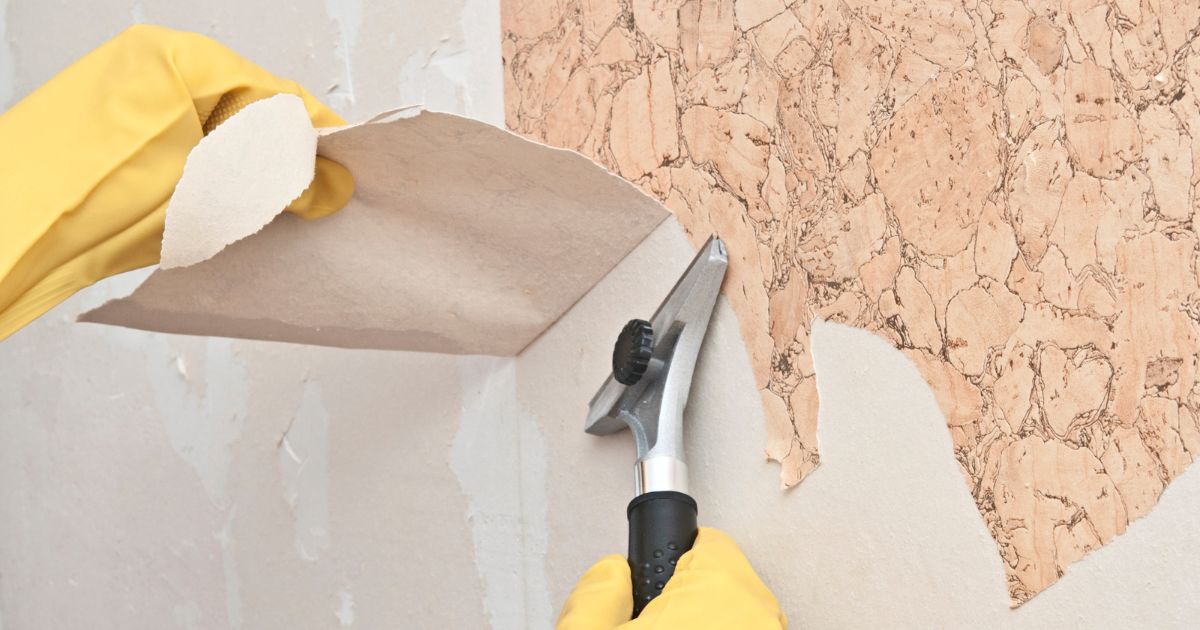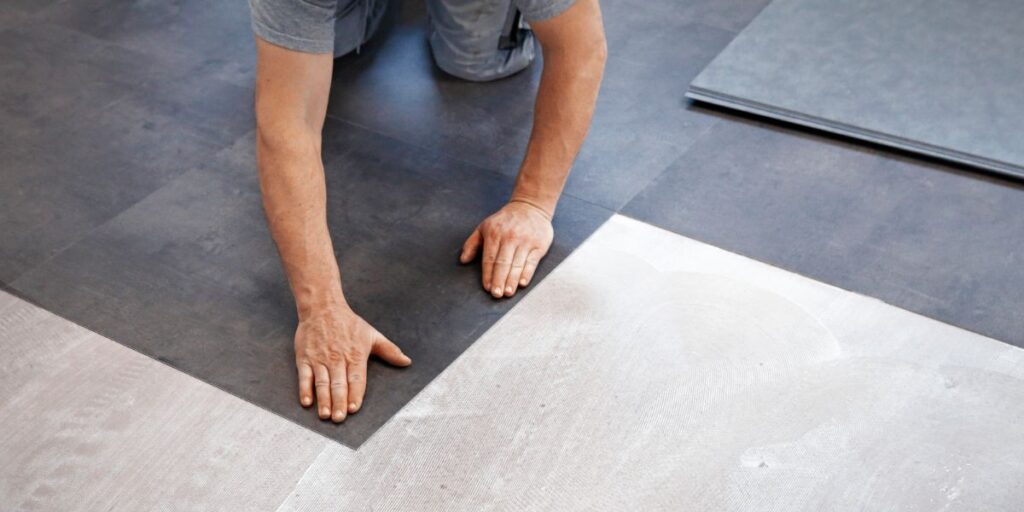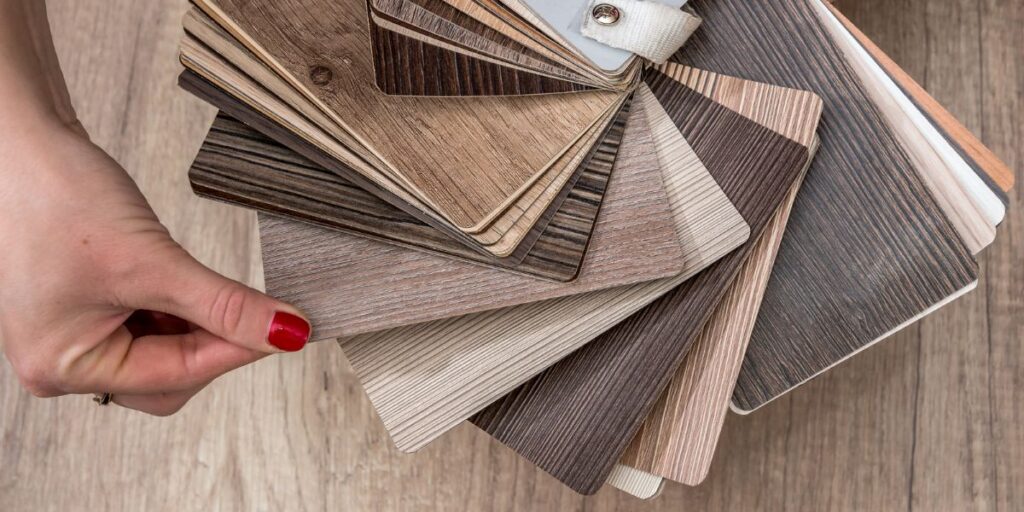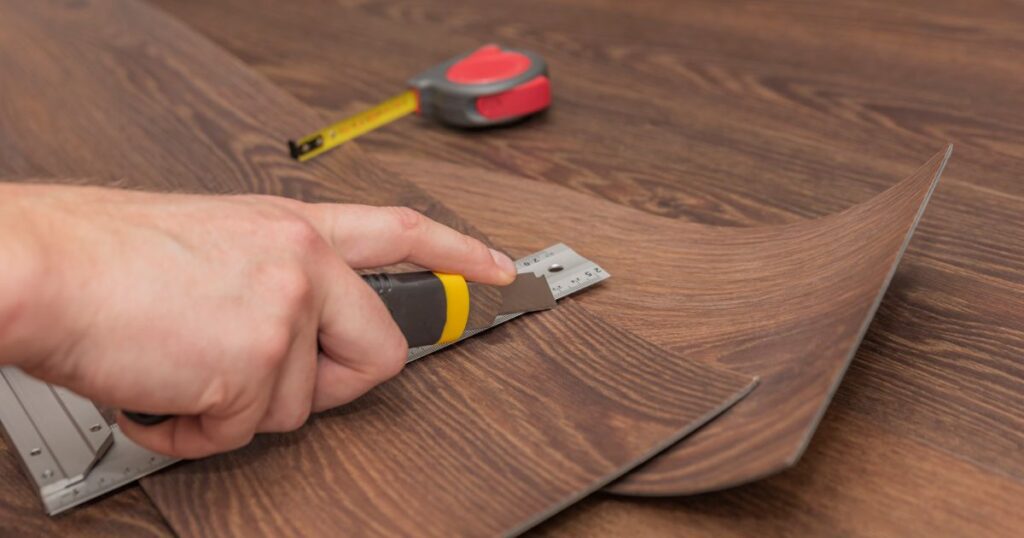
The Problem with Scratches on Vinyl Flooring
Vinyl flooring is a popular choice for homeowners due to its affordability and versatility. It is available in a variety of colors and patterns, making it easy to match any decor.
However, vinyl flooring can be easily scratched, which can quickly diminish its appearance. Scratches on vinyl flooring are not only unsightly but can also pose safety hazards. How to remove scratches from vinyl flooring?
Deep scratches can trap dirt and debris that could cause someone to slip and fall. Additionally, scratches can weaken the flooring over time, making it more prone to damage.
The Importance of Fixing Scratches
Ignoring scratches on vinyl flooring is not an option if you want your floors to last. Fixing scratches is essential for maintaining the appearance and longevity of the flooring.
Leaving scratches untreated will only lead to more damage as they trap dirt and debris that will wear down the surface. Moreover, keeping your vinyl floor scratch-free is important for hygiene purposes too!
Dirt and grime, which get trapped in the cracks, attract bacteria that breed in those hard-to-clean areas leading to unhygienic conditions. Fixing scratches on your own might sound like a daunting task, but it’s actually quite simple if you know what you’re doing!
In fact, there are plenty of DIY methods available that will help remove small surface-level scratches without breaking the bank or hiring professional help! The next section covers what causes vinyl flooring to scratch in the first place, so you know how best to avoid it…
Causes of Scratches
Heavy furniture or appliances
One of the most common causes of scratches on vinyl flooring is heavy furniture or appliances. People often drag their furniture across the floor when they are rearranging their homes or when they move to a new house.
This kind of activity is not only lazy, but it’s also extremely damaging to your flooring. If you have a scratch that runs along the path where your couch used to be, then you know what caused it.
Pet claws
Another reason why people end up with scratches on their vinyl floors is because of their furry friends. Pets can be very hard on floors, especially if they have long nails and like to run around the house like crazy. Sure, pets are adorable and lovable creatures, but they can also be quite destructive if you’re not careful.
High heels
Ladies, this one’s for you! Wearing high heels on your vinyl flooring can cause some serious damage over time.
A single pair of stilettos has enough force to dig right through your floor and leave a nasty scratch in its place. Sure, high heels may look amazing and make you feel confident as heck – but at what cost?
Dirt and debris
Dirt and debris can also cause scratches on your vinyl flooring if left unchecked for too long. Tiny bits of gravel or dirt trapped underneath shoes can act like sandpaper when people walk across the floor repeatedly. Over time, this will wear down the surface layer of your vinyl flooring and create unsightly scratches all over it.
There are many different reasons why vinyl floors may become scratched over time – from heavy furniture being dragged across them to pet claws leaving marks in their wake – so it’s important to be aware of these potential causes and take steps to prevent them from happening in the first place. Whether it’s by investing in furniture sliders, keeping your pet’s nails trimmed, or simply sweeping up dirt and debris regularly, taking care of your vinyl floors is essential if you want them to look great for years to come.
Assessing the Damage
Inspecting the Scratches
Before you can start removing scratches from your vinyl flooring, you need to assess the damage. Inspecting the scratches will help you determine the best method of repair and whether or not you can fix it yourself. Take a good look at your flooring and identify where the scratches are located.
Are they in high-traffic areas or more secluded areas? This will help you determine if they are from normal wear and tear or something more severe.
Depth and Length of Scratches
Once you’ve identified where the scratches are located, take a closer look at each scratch to determine their depth and length. Light surface scratches may only be superficial and easy to buff out with a simple solution like baking soda and water. However, deeper gouges may require more extensive repair methods, such as filling in with vinyl putty.
The length of the scratch is also important to note as it will affect how much area needs to be repaired. Longer scratches will require more material, time, and effort than shorter ones.
Number of Scratches
Are there just a few isolated scratches or do they cover a large area? The number of scratches on your vinyl flooring will impact which repair method is best suited for your situation. If there is only one scratch, then it may be easier to fill in with vinyl putty rather than using an entire buffing process for one small area.
However, multiple scattered surface-level scratches may benefit more from a larger-scale solution, such as using vinegar & oil solution over all affected surfaces. Assessing the damage before repairing your vinyl flooring is crucial to ensure that you use an effective method for repairing the specific type of damage that’s been done: depth/length/amount/location/etcetera… An inspection could save money by finding out that lighter solutions work or avoid a bigger headache if a professional is needed to patch deeper damage.
How to Remove Scratches From Vinyl Flooring?
Using Baking Soda and Water Mixture to Buff out Light Surface Scratches
Vinyl flooring is not cheap, and the last thing you want is to have a scratched-up mess on your hands. Luckily, there are DIY methods that can help you address light surface scratches.
One of the best DIY remedies is using a simple mixture of baking soda and water. To make this magical solution, all you need to do is mix ¼ cup of baking soda with just enough water to create a paste.
Once you have your mixture, apply it generously over the scratched area on your vinyl flooring. Then, using a soft-bristled brush or sponge, gently buff out the scratches with circular motions.
The great thing about this method is that it’s gentle enough to use on delicate surfaces like vinyl flooring while also being incredibly effective at removing light scratches. Just be sure not to use too much pressure when buffing out scratches, as this may cause further damage.
Applying Vinegar and Oil Solution to Deeper Scratches
For deeper scratches on your vinyl flooring, you will need something stronger than just a baking soda and water mixture. One popular DIY remedy for deeper scratches involves using vinegar and oil solution.
To make this solution, mix ¾ cup of olive oil with ¼ cup of white vinegar in a bowl until well combined. Then dip a soft cloth into the mixture and apply it liberally over the scratched area of your vinyl floor.
Allow the solution to sit for about 30 minutes. Once the time has passed, grab another clean cloth and buff away any excess oil left on your floor’s surface.
This will take some elbow grease, but it’s worth it as it will leave your vinyl looking shiny new once again. Be sure not to let any of the solution pool or sit for too long on your vinyl flooring, as this can cause further damage.
Also, do not use too much pressure when buffing away the excess oil, as this may also damage the surface of your vinyl flooring. These DIY methods for removing scratches from vinyl flooring are incredibly effective and affordable.
However, if the scratches are too deep or extensive, it’s best to leave it to a professional flooring contractor to avoid further damage. Remember to always be gentle when treating any surface scratches and take the necessary precautions to prevent future damage from occurring.
Professional Repair Options
When it comes to deep or extensive damage to your vinyl flooring, it’s time to call in the professionals. Hiring a qualified flooring contractor is the smartest option for fixing scratches that are too deep or numerous to fix with DIY methods.
The cost, however, can be a bit steep depending on the extent of the damage. Cost factors include the size of the affected area and how many scratches need repairing.
Contractors may also charge more if they need to remove and replace any damaged vinyl tiles. However, keep in mind that paying for professional repairs can increase the longevity of your flooring and save you money in the long run.
The Benefits of Hiring a Professional
Hiring a professional has several benefits beyond just fixing your scratched-up vinyl floors. They have specialized tools and materials that will help ensure repairs are done correctly. They’ll also have knowledge about how best to match any new tiles with your existing ones.
A professional contractor will also be able to identify underlying issues that may have caused scratches in the first place, such as improper subflooring or poor installation practices. This can help prevent future damage and save you from additional repair costs down the line.
Preventing Future Scratches
The best way to avoid future scratches on your vinyl floors is by taking preventative measures. Preventative care is essential for maintaining your flooring’s appearance and keeping it looking new for years to come.
A few simple tips can go a long way toward preventing scratches: – Use furniture pads under heavy furniture
– Keep pet nails trimmed – Avoid high heels on vinyl floors
– Place doormats at entryways to reduce dirt and debris entering the home. Taking these easy steps will help protect your flooring from future damage, saving you both time and money.
RELATED: Lifting Laminate: A Step-by-Step Guide to Fixing Your Flooring
Cleaning Tips
In addition to preventative measures, regular cleaning is crucial to maintaining your vinyl floors’ appearance. Use a soft-bristled broom or vacuum with a hard floor setting to remove dirt and debris. When mopping, use a solution specifically designed for vinyl flooring.
Avoid using abrasive cleaning tools or harsh chemicals that can damage the surface of the flooring. A gentle cleaning routine will keep your floors looking new for years to come.
Frequently Asked Questions
Can you fix scratches in vinyl flooring?
Minor scratches in vinyl flooring can often be fixed by using specialized vinyl scratch repair kits or by applying a vinyl floor polish or sealant to minimize their appearance. However, deep scratches may require professional assistance or replacement of the affected area.
Why is my vinyl flooring scratching?
Vinyl flooring can scratch due to factors such as abrasive dirt or debris on the floor’s surface, moving heavy furniture without protective pads, or dragging sharp objects across the floor. It’s important to maintain regular cleaning and use furniture pads to minimize the risk of scratches.
How do you fix scratches on luxury vinyl planks?
To fix scratches on luxury vinyl planks, you can start by cleaning the area and then using a specialized vinyl repair kit that matches the color of the planks. Follow the instructions provided with the kit to fill in the scratches and blend them with the surrounding area.
How do you repair damaged vinyl flooring?
Repairing damaged vinyl flooring depends on the type and extent of the damage. Small cuts or tears can be patched using a vinyl repair kit or by replacing the damaged section. For more significant damage, it may be necessary to consult a professional or consider replacing the entire floor.
Can you restore scratched vinyl?
While it may not be possible to completely restore scratched vinyl flooring to its original condition, you can minimize the appearance of scratches by using vinyl scratch repair kits or applying floor polishes or sealants designed for vinyl surfaces. However, deep scratches may remain visible.
How do you remove scratches from floor?
Removing scratches from floors depends on the type of flooring material. For hardwood or laminate floors, you can use specialized repair kits or techniques such as sanding and refinishing. However, for vinyl flooring, the options are limited, and it is more practical to focus on minimizing the appearance of scratches rather than completely removing them.
Conclusion
Vinyl flooring is an excellent option for any home, providing durability and style at an affordable price point. But scratches can quickly detract from its beauty and longevity. Taking preventative measures and regular maintenance is the best way to keep your floors scratch-free.
If scratches do occur, don’t panic. DIY methods like baking soda and vinegar solutions can help fix minor scratches.
But when it comes to deep or extensive damage, it’s time to call in a pro. By following these tips for preventing future scratches and taking care of existing ones, you’ll enjoy beautiful vinyl floors for years to come!



